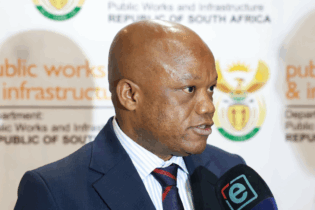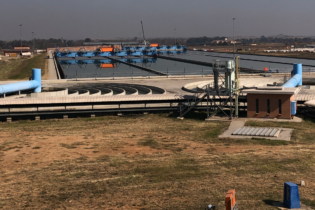The South African Institution of Civil Engineering (SAICE) welcomes the recent announcements made by the Minister of Finance Enoch Godongwana to streamline procedures, enhance accountability, and introduce new financing instruments to bolster infrastructure projects across the country.
CEO of SAICE, Sekadi Phayane-Shakhane, emphasizes the importance of these initiatives, stating that the amendments to the public-private partnership (PPP) regulatory framework, the review of institutional arrangements, and the introduction of new financing instruments are crucial steps towards addressing the challenges faced by many sectors, including in infrastructure. “These measures must be properly implemented to reduce procedural complexities, enhance coordination, and diversify funding sources, ultimately fostering sustainable infrastructure development.” President of SAICE, Andrew Clothier, echoes these sentiments, noting that the constrained fiscal environment necessitates innovative approaches to infrastructure financing. “SAICE’s proposal for a PPP funding solution, highlighted to National Treasury last year, advocates for the use of bridging loans to fund transaction advisor fees – where the loan is repaid on financial close of the project taken from project funding – and demonstrates our commitment to finding creative solutions to support infrastructure projects and working with the public sector. PPPs have the potential to leverage private sector capital for construction, stimulating economic growth and job creation.”SAICE welcomes the government’s commitment to infrastructure spending but emphasizes the importance of transparent and efficient allocation and use of funds. “While we appreciate the focus on infrastructure development, it’s crucial to ensure that investments are directed towards projects that generate maximum benefit and employment opportunities for all stakeholders,” says Clothier.
He adds: “Furthermore, about the financially challenged state-owned operators such as Transnet and PRASA – while we appreciate the government’s efforts to rebuild these entities, the key concern remains how they plan to strategically allocate funds, build and maintain infrastructure, and reduce debt to generate widespread employment opportunities and economic benefits for all.”






